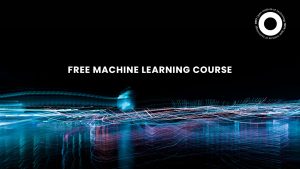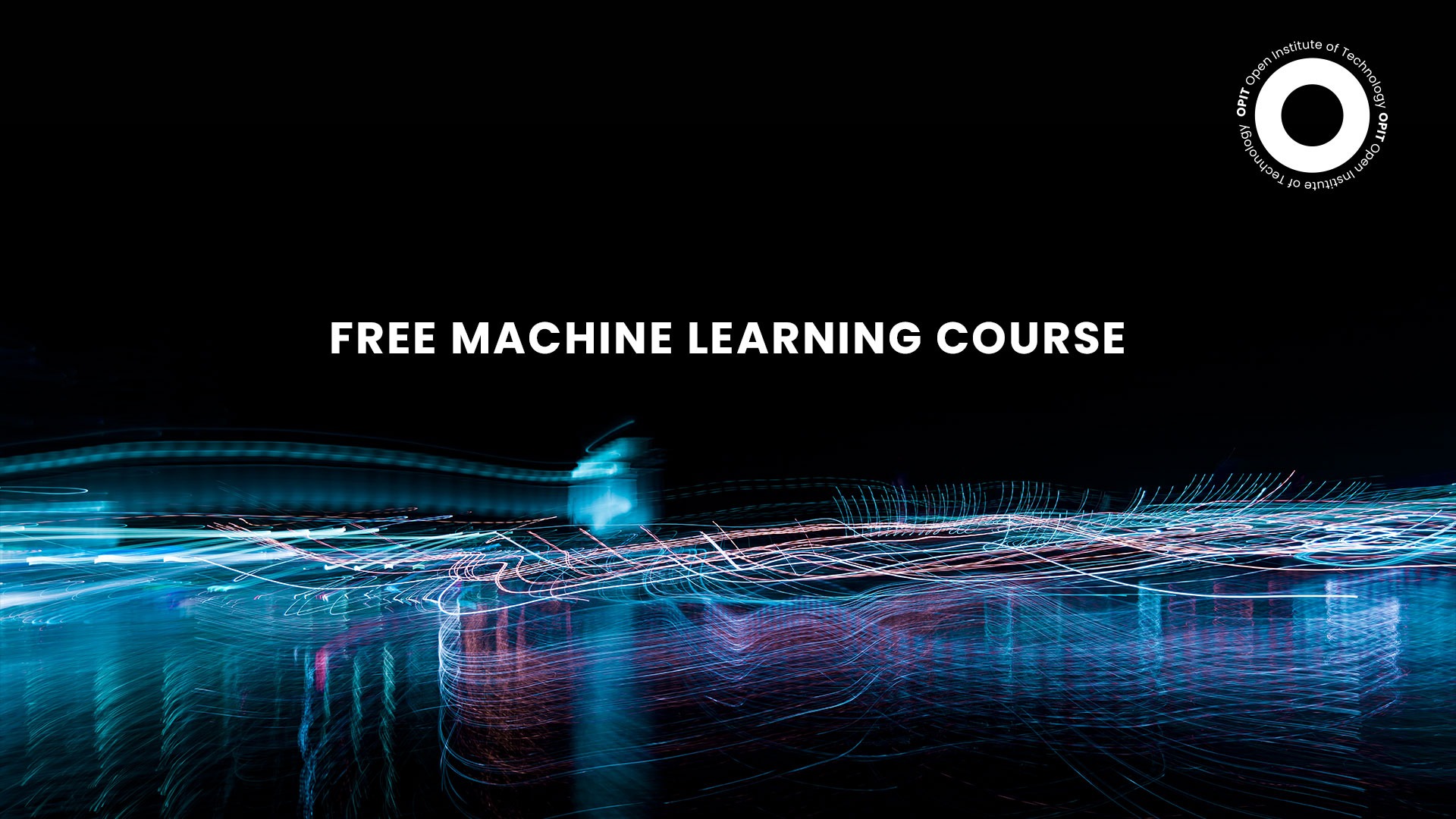

Did you know that machines can learn, too, similarly to humans?
In machine learning, software applications can be trained to parse data, learn from it, and then make informed decisions based on their findings. This outcome prediction has proven to be invaluable in numerous industries, including IT (malware threat detection), healthcare (disease diagnosis and prognosis), manufacturing (business process automation), and finance (fraud detection).
The importance of machine learning in today’s technology-driven world can’t be understated. So, if you’re considering a career in data science, software engineering, or artificial intelligence (AI), this is the skill to learn.
Fortunately, learning this skill is now accessible to almost anyone. Just go online and find a machine learning course for beginners.
We’ve gathered our three favorites to help you narrow your search (and avoid wasting time on subpar courses). We aim to make it easy to select the perfect free machine learning course and crush it online.
Criteria for Selecting the Top Beginner-Friendly Online Picks
The internet offers seemingly endless learning resources. This is undoubtedly great news, as it levels the playing field for eager learners worldwide. But be careful; not all online resources will be valuable to you. Some will just waste your time.
So, how can you comb through the sea of content and find a course worth pursuing? By knowing precisely what you’re looking for, of course. Check out our selection criteria to track down a great online course.
Course Content and Structure
Most courses you find online will come with a description. The more detailed it is, the better. By carefully reading the description, you’ll better understand what the course covers and how it is structured.
These descriptions can sometimes read fluffy to get as many learners to apply. But try to look past the buzzwords and extract only the essential information – what the syllabus looks like, how many hours it takes to complete the course, and how the lessons are spaced.
If there are video lessons, check previews to ensure you’ll only work with high-quality video and audio outputs throughout the course.
Instructor Expertise and Teaching Style
If the course’s content is sound, it’s time to move on to the person (or people) who will present it to you. After all, anyone can read a bunch of words from a book. It takes an experienced and knowledgeable instructor to help you truly understand the learning material.
So, before signing up for the course, do a little research on the instructor. Check out their bio to learn about their expertise and experience in the field.
Beyond that, play a lecture or two to ensure their teaching style suits you. Having issues with the little things like their voice or body language can impact your concentration and, in turn, your success.
Platform Features and User Experience
Now that we’ve covered what you’re learning and who you’re learning it from, the only question is where the learning will take place.
Take a more in-depth look at the platform hosting your chosen course. Ensure it offers a seamless user experience, as glitches and downtime aren’t exactly ideal for a learning environment.
Also, the more exciting features the platform has, the easier it will be to stick to the course. Different learning material formats, interactive elements, discussion forums, and progress tracking are just some of the features that can significantly improve your learning experience.
Community Support and Resources
The lack of personal interaction in online learning can make you feel like you’re all alone. This can be incredibly challenging if you’re struggling with a lesson or a part of the course. So, when looking for the perfect online class, ensure you’ll get a chance to interact with other learners or even experts in the field.
Asking questions, sharing insights, collecting feedback, and receiving support and motivation should be a part of every learner’s journey.
Cost and Accessibility
If your chosen course checks all your boxes, don’t celebrate just yet. First, check whether you can access it and how much it costs.
Access can sometimes be limited by your country or device, so make sure nothing stands between you and learning online.
As for the cost, you’ll find plenty of high-quality courses free of charge. If there is a fee to pay, check whether you can purchase just the individual class or you have to subscribe to the platform. The latter approach is better for those who want to acquire multiple skills and work on their education long-term.
Top Beginner-Friendly Online Picks for Free Machine Learning Courses
Here are the top three beginner-friendly machine learning courses we’ve chosen based on the selection criteria above. Each one should help you learn the fundamentals of this field and how to use machine learning effectively as a skill.
Supervised Machine Learning: Regression and Classification by Andrew Ng
If you want to learn more about machine learning, why not consult one of its leading figures? That’s what you can do if you take this course. You’ll learn from Andrew Ng, a prominent computer scientist and a pioneer in machine learning and AI. All things considered, it’s no wonder this is probably the most popular free machine learning course online.
During this course, you’ll master the key concepts of machine learning (supervised and unsupervised learning and best practices) and learn how to apply them in practice. Some of the skills you’ll gain include:
- Linear regression
- Logistic regression for classification
- Gradient descent
- Regularization to avoid overfitting
This is one of the best beginner courses for entering the machine learning field. It offers abundant knowledge, a flexible schedule, and resettable deadlines. The only downside is that you must enroll in the entire specialization to receive a certificate upon completion.
Machine Learning Crash Course by Google
Google is a major disruptor in the AI industry. So, a free machine learning course offered by this tech giant is seriously a big deal. As the name suggests, this is a crash course, so expect a fast-paced and intense approach to machine learning.
Throughout 25 lessons, you’ll learn about specific machine-learning areas through video lectures from Google researchers, real-world case studies, written guides, and hands-on exercises.
The key topics this course covers include:
- A deep dive into neural networks
- The inner workings of gradient descent
- Model training and evaluation
- The importance of loss functions
The course is relatively short (15 hours) yet informative, so it can be an excellent choice for those pursuing machine learning while having a job. However, if you’re an absolute beginner, you’ll have to do some reading before starting the course, which some may view as a downside.
Practical Machine Learning With Scikit-Learn by Adam Eubanks
If you’re looking for something even shorter than Google’s Crash Course, you’ll love this course on Udemy. You’ll learn the most powerful machine-learning algorithms in a little over an hour. This course focuses on Scikit-Learn, a Python machine-learning library ideal for beginners.
Here are some of the algorithms this course covers:
- Linear regression
- Polynomial regression
- Multiple linear regression
- Logistic regression
- Support vector machines
- Decision trees
This is the perfect course for kick-starting your machine-learning journey. However, some learners might find it too limited in scope. Also, the course lacks interaction with the instructor, which might be a deal breaker for some learners.
Tips for Success in Learning Machine Learning Online
Imagine going through all the trouble of finding the perfect machine learning free online course, only to abandon it halfway through. There’s no judgment here, of course. We know how difficult it can be to persevere with learning outside the traditional classroom and school system.
So, here are some tips to help you complete a machine learning course for beginners triumphantly:
- Set clear goals and expectations. Before starting the course, remind yourself of why you’re doing it and how it fits your career development. Don’t just buy the course for the sake of buying it; these impulse purchases rarely translate to success.
- Dedicate consistent time for learning. Like with many things in life, consistency is key. But this time, there’s no one to keep you on track besides yourself. So, work on your self-discipline and commit to regular study sessions.
- Engage with the community and seek help when needed. Online learning can feel like an isolating experience. But it doesn’t have to, provided you’ve selected the right platform. If you ever feel stuck, don’t hesitate to seek help from the community. These simple interactions will help you stay motivated and focused.
- Apply learned concepts to real-world projects. As soon as you gain a fundamental understanding of machine learning, try to put this knowledge to practice. Seeing how the theory you’re learning sets you up for success is a great incentive to keep learning.
- Continuously update skills and knowledge. Are you done with the machine learning course for beginners? Great, it’s time to look for a more advanced one. Continuously learning and improving your skills is the only way to stay on top.
Considerable Knowledge at No Cost
You won’t make a mistake regardless of whether you put your trust in Andrew Ng or Adam Eubanks or go the Google route. What you will do is gain valuable knowledge about an even more valuable skill: machine learning.
If you want to master your knowledge of machine learning, consider pursuing a Bachelor’s degree in Modern Computer Science from the Open Institute of Technology. The syllabus includes two courses focusing on machine learning and numerous others that will skyrocket your career opportunities.
Have questions?
Visit our FAQ page or get in touch with us!
Write us at +39 335 576 0263
Get in touch at hello@opit.com
Talk to one of our Study Advisors
We are international
We can speak in:




